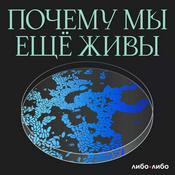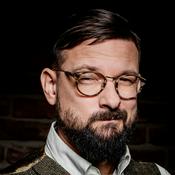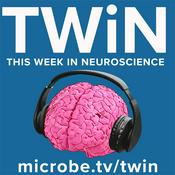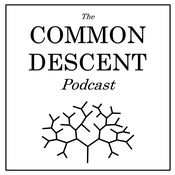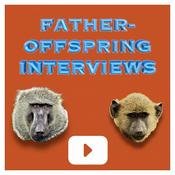353 odcinków
- In this week's episode, Nate reflects on his experience with knee surgery and being a "creature in the machine" (the Superorganism). He touches on the often-forgotten nature of our physical existence in a world dominated by cognitive labor and abstractions, exploring the tension between gratitude for the gains of modern medicine and knowledge of the hidden energetic cost of these technologies.
Alongside these personal reflections, Nate unpacks his thoughts on some current political events and considers timely questions of power, legitimacy, and social fragmentation in a post-peak carbon world. He adds insights from the two books he's read during recovery, putting Tolkien's Fellowship of the Ring in conversation with Kingsnorth's Against the Machine in order to highlight the growing contrast of our humanity against the larger power-oriented system. Running through the episode is an invitation to remain human, embodied, and relational even while benefiting from, critiquing, and resisting the forces that seek to turn life into components.
What does it mean to remain as a biological "creature" while living inside vast, and increasingly abstract, technological and economic systems? Where does gratitude for modern capabilities come into balance with responsibility for their costs? Finally, what practices might help preserve human meaning, agency, and connection in an increasingly mechanized world?
(Recorded January 21, 2026)
Show Notes and More
Watch this video episode on YouTube
Want to learn the broad overview of The Great Simplification in 30 minutes? Watch our Animated Movie.
---
Support The Institute for the Study of Energy and Our Future
Join our Substack newsletter
Join our Hylo channel and connect with other listeners Arms Race or the Human Race? Governance in the Age of AI, Nuclear Threats, and Geopolitical Brinkmanship | RR 21
21.01.2026 | 1 godz. 27 min.Humans have shaped the world more than any other species in existence, largely due to our ability to coordinate and work together as a unit – in other words, to govern ourselves. This means that, while human societies are at the center of the many crises we face today, we are also the key to navigating through them safely. But this is only possible if we're able to hold the foundations of our governance together: communication, agency, and remembering our shared humanity. What is the current state of our ability to do this, and what policy mechanisms and agreements are needed to navigate the turbulent decades to come?
In this Reality Roundtable, Nate is joined by geopolitical risk experts Mark Medish and Chuck Watson to discuss the increasing strain being placed on human governance as a result of escalating conflicts between nations and state leaders. Together, they delve into the intricate foundations of our modern governing structures and why it is critical that we reinforce existing international treaties and agreements in order to avoid the worst outcomes for all of humanity. Mark and Chuck also discuss the history of nuclear arms control – including the upcoming expiration of the New Strategic Arms Reduction Treaty (New START) – and how artificial intelligence threatens to disturb the tenuous peace built in the 20th century. Ultimately, they emphasize the need to renew public awareness and education on the importance of governance and the need for our leadership to engage in diplomatic negotiations in an increasingly complex world.
Despite the media's focus on laws, regulations, and technology, why do people and our shared humanity still lay at the center of good governance and decision making? Where are our current leaders failing us, and does the average citizen still hold agency to influence the trajectory of global events? Lastly, what do we risk by abandoning trust in our fellow citizens and nations, and what opportunities are still available to rebuild our confidence in each other?
(Conversation recorded on January 8th, 2026)
About Mark Medish:
Mark Medish has over 30 years of professional experience in policy, law, finance, and strategic communications. Medish served at The White House as a Special Assistant to the President and Senior Director on the National Security Council, as well as at the U.S. Treasury as Deputy Assistant Secretary for International Affairs. He also worked in senior positions at the State Department (USAID) and the United Nations (UNDP). Medish is Vice Chair of Project Associates Ltd., a London headquartered strategic consultancy with offices in Europe, the Middle East, East Africa, and the U.S. He is also a founding partner of the Mosaiq Law Group in Washington, D.C., and a co-founder of Keep Our Republic, a non-profit civic education organization promoting democratic governance and rule of law.
His previous business leadership posts include: president of The Messina Group, a boutique strategic communications firm based in Washington, D.C.; president of the international division of Guggenheim Partners, an asset management company headquartered in Chicago; and equity partner at Akin Gump, an international law firm where he led the sovereign advisory practice. He worked as a vice president for studies and senior scholar at the Carnegie Endowment for International Peace. He was a visiting research fellow at The Japan Institute of International Affairs in Tokyo. He is a life member of the Council on Foreign Relations. He is also a board member of the Institute for the Study of Diplomacy at Georgetown University and the Institute for Human Sciences (IWM) in Vienna.
About Chuck Watson:
Chuck Watson has had a long career in international development projects as well as military and intelligence work, with a specialty in natural and human-made disaster modeling. He worked for the US Air Force, was an attaché to US Ambassadors to the Middle East Robert McFarland and Secretary of Defense Donald Rumsfeld.
Chuck has worked as an advisor to governments for over four decades with a particular emphasis on big data, open source intelligence, with an emphasis on the Soviet Union and Russia. Chuck is also the founder and Director of Research and Development of Enki Holdings, LLC, which designs computer models for phenomena ranging from tropical cyclones (hurricanes) and other weather phenomena, earthquakes, and tsunamis, as well as anthropogenic hazards such as industrial accidents, terrorism, and weapons of mass destruction.
Show Notes and More
Watch this video episode on YouTube
Want to learn the broad overview of The Great Simplification in 30 minutes? Watch our Animated Movie.
---
Support The Institute for the Study of Energy and Our Future
Join our Substack newsletter
Join our Hylo channel and connect with other listeners- In this week's Frankly, Nate explores the relationship between technology and wealth when viewed through a global biophysical lens. He uses the visualization of a straw, siphon, and sieve to describe how technology enables the acceleration of physical resource extraction and the concentration and filtering of resulting 'wealth' towards the human species. Running contrary to the commonly-held idea that technology automatically creates monetary wealth (and therefore prosperity), this episode asks listeners to view real wealth as the underlying stocks and flows that make life on Earth possible – whether in the form of forests, social trust, or entire functioning ecosystems.
Nate also discusses the ways that technologies have been deployed to rearrange natural systems around narrow, growth-centric priorities throughout much of human history. Utilizing examples regarding agriculture, finance, and artificial intelligence, he suggests that tools effective at small scales might behave very differently when applied globally – setting us on the path to overshoot that we find ourselves walking today.
If technology reflects human priorities, what does current innovation and development reveal about what we currently value? What would it mean to shift towards prioritizing life-giving flows within natural systems and away from accelerating the liquidation of Earth's stocks? Finally, how can societies and individuals begin to distinguish between innovation that serves to borrow from our future versus genuine progress toward a more stable world?
(Recorded December 25, 2025)
Show Notes and More
Watch this video episode on YouTube
Want to learn the broad overview of The Great Simplification in 30 minutes? Watch our Animated Movie.
---
Support The Institute for the Study of Energy and Our Future
Join our Substack newsletter
Join our Hylo channel and connect with other listeners Why the West Can't Defend Itself: How Material Scarcity Is Reshaping Global Power with Craig Tindale
14.01.2026 | 1 godz. 41 min.For decades, the West has outsourced its own material production to other countries, in favor of lower costs and short-term returns over more expensive, long-duration investments like mining and manufacturing. But while this has seemed like a success on the surface, it has left us with a society based on consumption, unable to produce what we need on our own. What are the deeper costs of this long-term offshoring – including for our geopolitical, climate, and technological ambitions?
In this conversation, Nate is joined by materials expert and investor Craig Tindale, who explores the profound vulnerabilities facing Western economies by what he calls "Industrialization 2.0." Craig argues that decades of central banking policies favoring consumption and short-term returns have led the West to offshore virtually all materials production and processing to China – limiting the West's ability to defend itself, as well as rebuild industrial capacity to address the growing technological needs of climate and AI. Tindale also introduces his "four clocks" framework, which describes how corporate quarterly cycles, 10-20 year climate urgency, immediate defense needs, and continuous consumption addiction are all ticking at different speeds and pulling society in incompatible directions. Furthermore, he posits that Silicon Valley's "unspoken bet" is on human obsolescence, with capital flowing to robot owners rather than human workers.
How do all of these pieces – monetary policy, critical materials, climate action, geopolitical risk, and technological displacement – fit together to create a perfect storm for humanity's future? Why might the only path to a circular economy be "through the valley of death" – forced by necessity rather than choice? And what types of practical investments and technological innovations are needed to make our societies more resilient in the face of impending geopolitical and economic turbulence?
(Conversation recorded on December 10th, 2025)
About Craig Tindale:
Craig Tindale is a private investor who has spent nearly four decades working in software development, business strategy, and infrastructure planning, including in leadership positions at Telstra, Oracle, and IBM. Additionally, he has direct experience working in east-to-west supply chains, including as the CEO and Asia Regional Director for DataDirect Technologies.
He's now pivoted to investing in groundbreaking ideas such as drone reforestation through Air Seed Technologies, and uses his knowledge of Chinese industrial strategy and Western tech demand to identify the choke points in Critical Metals markets. Most recently he released the white paper, Critical Materials: A Strategic Analysis, which offers a systems synthesis on how the race for rare earths and the return of material constraints is shaping geopolitical relationships.
Show Notes and More
Watch this video episode on YouTube
Want to learn the broad overview of The Great Simplification in 30 minutes? Watch our Animated Movie.
---
Support The Institute for the Study of Energy and Our Future
Join our Substack newsletter
Join our Hylo channel and connect with other listeners- In this week's Frankly, Nate shares reflections on what we take for granted in life at multiple scales: from personal health to meaningful work to relative ecological stability. The things that keep our everyday lives functioning often go unnoticed until they're needed or suddenly absent, suggesting that real wealth might come in the form of reliability rather than material gain. Nate also considers what has happened to our attention in an age of constantly-available stimulation, reflecting on how moving towards a quieter and slower lifestyle (whether by choice or by external circumstances) might engage us with small joys that have been forgotten in pursuit of quick dopamine.
When do you most acutely notice the (mostly) invisible supports that make our lives feel effortless, if ever? How has constant access to dopamine and stimulation shaped how your mind conceptualizes and responds to rest or relief? Finally, what does it mean to live freely and with autonomy in systems that increasingly shape our behavior without requiring consent or awareness?
(Recorded January 6, 2026)
Show Notes and More
Watch this video episode on YouTube
Want to learn the broad overview of The Great Simplification in 30 minutes? Watch our Animated Movie.
---
Support The Institute for the Study of Energy and Our Future
Join our Substack newsletter
Join our Hylo channel and connect with other listeners
Więcej Nauka podcastów
Trendy w podcaście Nauka
O The Great Simplification with Nate Hagens
The Great Simplification is a podcast that explores the systems science underpinning the human predicament. Through conversations with experts and leaders hosted by Dr. Nate Hagens, we explore topics spanning ecology, economics, energy, geopolitics, human behavior, and monetary/financial systems. Our goal is to provide a simple educational resource for the complex energetic, physical, and social constraints ahead, and to inspire people to play a role in our collective future. Ultimately, we aim to normalize these conversations and, in doing so, change the initial conditions of future events.
Strona internetowa podcastuSłuchaj The Great Simplification with Nate Hagens, Elektryfikacja - podcast Jakuba Wiecha i wielu innych podcastów z całego świata dzięki aplikacji radio.pl

Uzyskaj bezpłatną aplikację radio.pl
- Stacje i podcasty do zakładek
- Strumieniuj przez Wi-Fi lub Bluetooth
- Obsługuje Carplay & Android Auto
- Jeszcze więcej funkcjonalności
Uzyskaj bezpłatną aplikację radio.pl
- Stacje i podcasty do zakładek
- Strumieniuj przez Wi-Fi lub Bluetooth
- Obsługuje Carplay & Android Auto
- Jeszcze więcej funkcjonalności


The Great Simplification with Nate Hagens
Zeskanuj kod,
pobierz aplikację,
zacznij słuchać.
pobierz aplikację,
zacznij słuchać.



